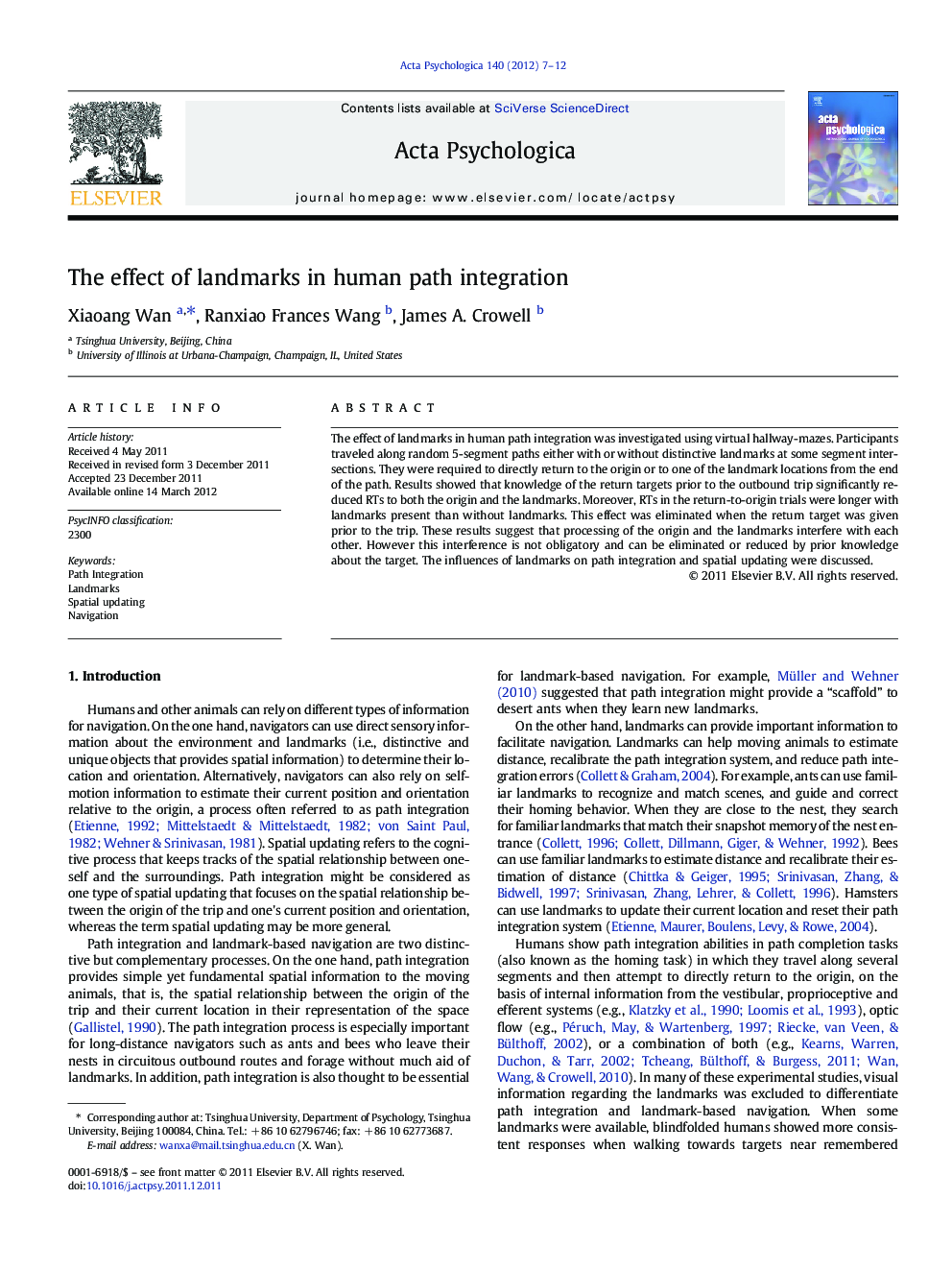| Article ID | Journal | Published Year | Pages | File Type |
|---|---|---|---|---|
| 919967 | Acta Psychologica | 2012 | 6 Pages |
The effect of landmarks in human path integration was investigated using virtual hallway-mazes. Participants traveled along random 5-segment paths either with or without distinctive landmarks at some segment intersections. They were required to directly return to the origin or to one of the landmark locations from the end of the path. Results showed that knowledge of the return targets prior to the outbound trip significantly reduced RTs to both the origin and the landmarks. Moreover, RTs in the return-to-origin trials were longer with landmarks present than without landmarks. This effect was eliminated when the return target was given prior to the trip. These results suggest that processing of the origin and the landmarks interfere with each other. However this interference is not obligatory and can be eliminated or reduced by prior knowledge about the target. The influences of landmarks on path integration and spatial updating were discussed.
